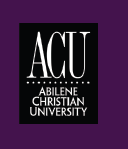Abstract
The Merlin section of the thirteenth-century Old French Vulgate Cycle focuses on Arthur’s birth and the now iconic events that accompany his divine selection and coronation as King of Britain. A close reading of this account reveals that significant story events usually coincide with religious holidays. The transition from the pagan to the Christian calendar and the symbolic impact of the calendar on the early formation of the round table in the French Vulgate Cycle has been mostly overlooked by scholars. In this paper, I address this lacuna by examining the role the calendar plays in the development of characters and events during this pivotal moment in the evolution of the Arthurian legend. For example, both Uther and Arthur have significant experiences involving their crowns during Whitsuntide, which suggests that this holiday held important cultural implications. I pay close attention to the significance of the holidays that were transitioning from Pagan rituals to Christian rites for the Vulgate writers’ thirteenth-century courtly audience. I argue that the frequent and consistent intersection of crucial story events and major holidays reveals the considerable role that cultural practices had on the early development of Arthurian legend.
Creative Commons License

This work is licensed under a Creative Commons Attribution 4.0 License.
Recommended Citation
Patterson, Mark Lee
(2016)
"Holidays and Holy Days: The Significance of the Pagan/Christian Calendar in the French Vulgate Account of King Arthur and His Round Table,"
Conversations: A Graduate Student Journal of the Humanities, Social Sciences, and Theology: Vol. 3:
No.
1, Article 3.
Available at:
https://digitalcommons.acu.edu/conversations/vol3/iss1/3


